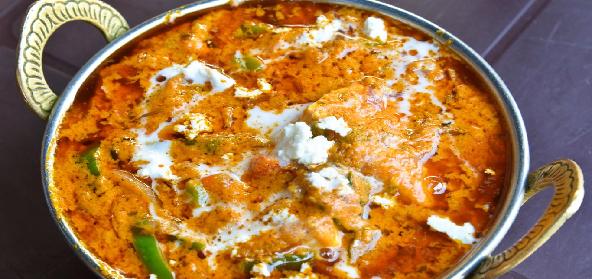Continuing the saga of the same holiday at Nellikuppam – a never-to-be-forgotten holiday for all of us who were there – even by my aunt Kalyani pinni’s standards of hospitality, this holiday had reached a zenith – we continued on to Madras where we spent a few more weeks – some fifteen of us children – at my other aunt’s place. Now this aunt, Malathi pinni– was great fun but also a working woman – so adult supervision was conspicuous by its absence!
One day, Arun – the cousin with the butter-wouldn’t melt-in-my-mouth eyes, decides that he needs to practise his hair dressing skills – maybe that was one of his career plans back then – with Arun, one never knew! And so, armed with a pair of large and lethal-looking scissors from my aunt’s sewing basket and a small, also lethal-looking pair from my uncle’s shaving kit, he sets to. His first victim is his sister Akhila, whose faith in the older brother is rather touching, though misplaced! In her defence, Arun could be very persuasive!
And so settling Akhila down lovingly at the dining table, our man proceeds to sharpen his tools – eyes gleamng with anticipation. Luckily, Akhila’s back was turned to him otherwise I’m sure she’d have run screaming for mercy! A little snip here, a little snip there… oh no, too much here, let’s do a little bit more there… oh dear, the left is a little lopsided, let’s cut a bit more on the right to even it out… you get where we’re going, right?! And before we know it, Akhila is looking like a hen that’s got mixed up in a cockfight – straggly and slightly bald in spots where the enthusiastic ‘hairdresser’ has had his atttention distracted!
Akhila is not one to say die easily and her faith in the big brother’s abilities remain unhampered. Not so the rest of us, who run screaming for mercy!!
Arun had to face the music, of course, but he’d had his hijinks already!
Another afternoon, after a VERY large lunch – one of our favourites – small onion sambar and ‘skin potato’ curry, a game of cards was set up. Now, as everyone knows, games of cards are very boisterous affairs involving much expenditure of energy in shouting and jumping up and down and obviously resultant pangs of hunger! We foraged and came upon this huge dabba of murukku which had been kept for our tea as a surprise by Malathi pinni. We decided we’d give her a surprise – by saving her the trouble of serving it out and all the effort it involved! And so, the murukus were rationed out – with strict adherence to rules of fairness – a lesson we’d learnt really well from our grandfather!
My aunt comes back from work, goes into the kitchen and comes out with a big grin, cradling a large dabba with which we are all too familiar, in her arms.
“Guess what you’ve got for… tea… ????*&^%&” and her voice peters out in shock! The music has to be faced… everyone sort of slides behind the other one in front till we’re fairly playing a game of musical lines! Arun, of course, is the honest Joe, who decides that the music is never so bad when we actually face up to it..”Malathatha, we all ate it. All of us are responsible!” he announces.
The fireworks disappear as rapidly as they arose – my aunt always could see the joke!
And in memory of that day, here are those murukulu or janthikalu in Telugu…
JANTHIKALU
- Rice flour -2 1/2 cups
- Senagapundi/besan/chickpea flour – 3/4 cup
- Salt – 1 tsp
- Red chili powder – 1 tsp
- Caraway seeds/ajwain/omam seeds – 1 tsp
- Sesame seeds – 1 tbsp
- Hot ghee – 2 tbsp
- Oil for deep frying
- Murukula gottam – the implement for squeezing out the dough – see pic.
Mix all these ingredients together. Adding water a little at a time, make a medium soft dough.
As you are doing this, heat the oil to below smoking point. If it gets too hot, switch off and let cool a bit.
Pinch off a bit of the dough and drop it into the oil. It should sizzle and rise up but NOT turn brown immediately.
Squeeze the dough out straight into the oil in concentric circles and let fry, turing over once till pale golden brown and crisp.
Keep stacking them into a steel dabba (very important for authenticity!!) with a paper napkin at the bottom. Let cool completely before putting the lid on.
Great accompaniment to anything in life, including haircuts by inexpert brothers!






